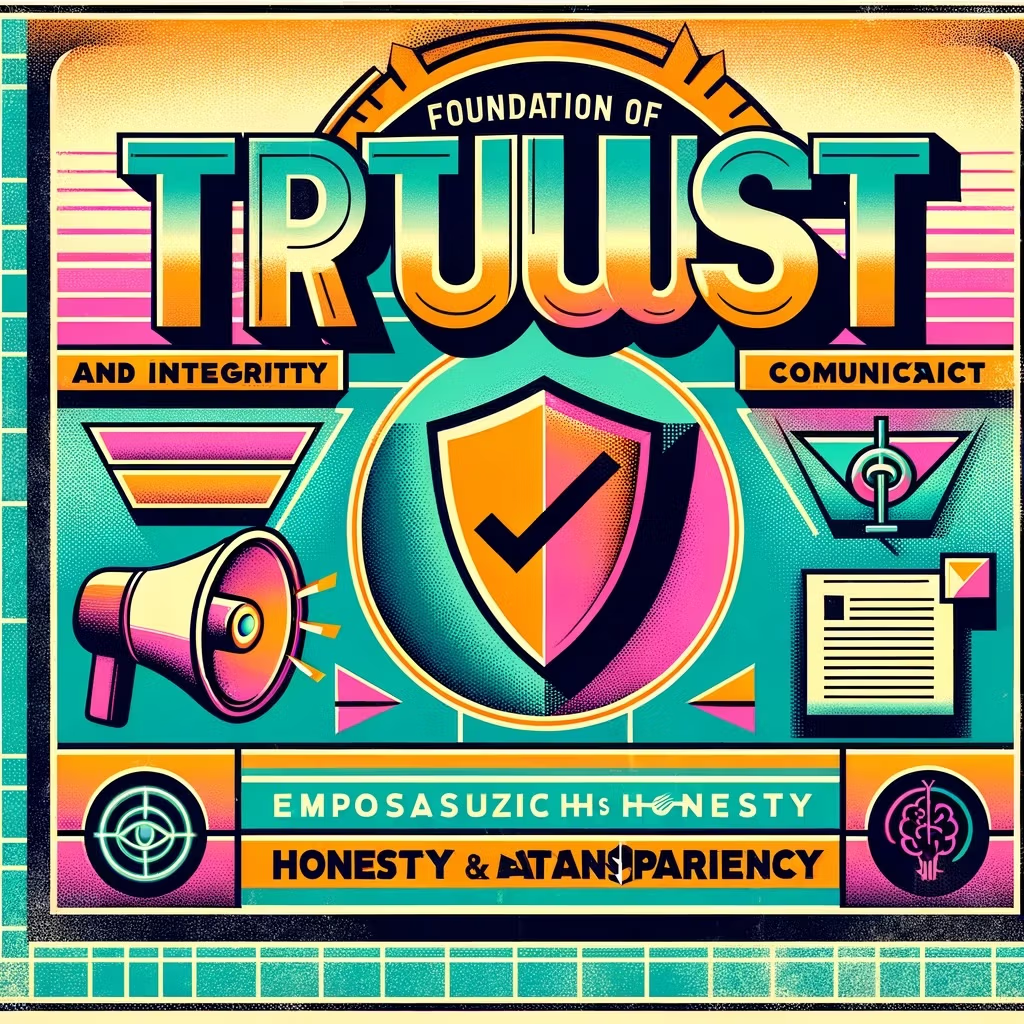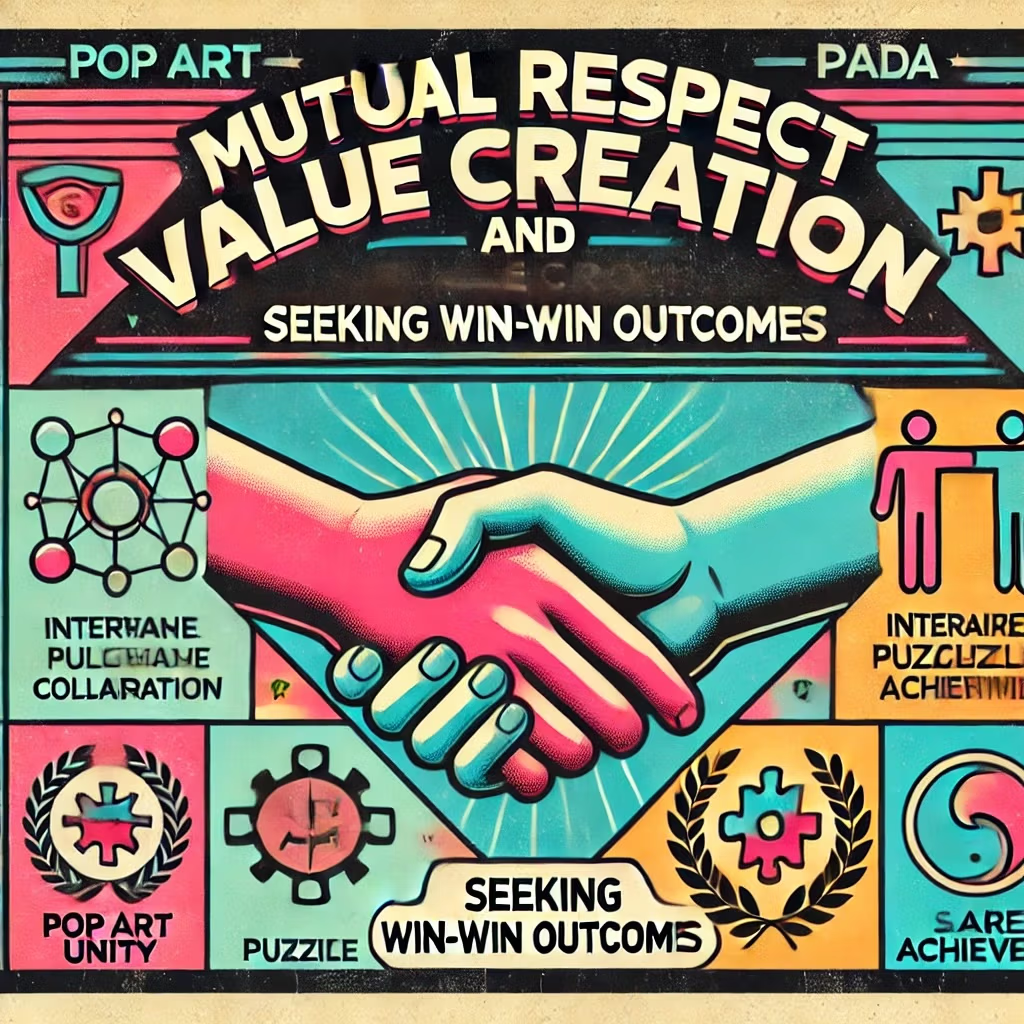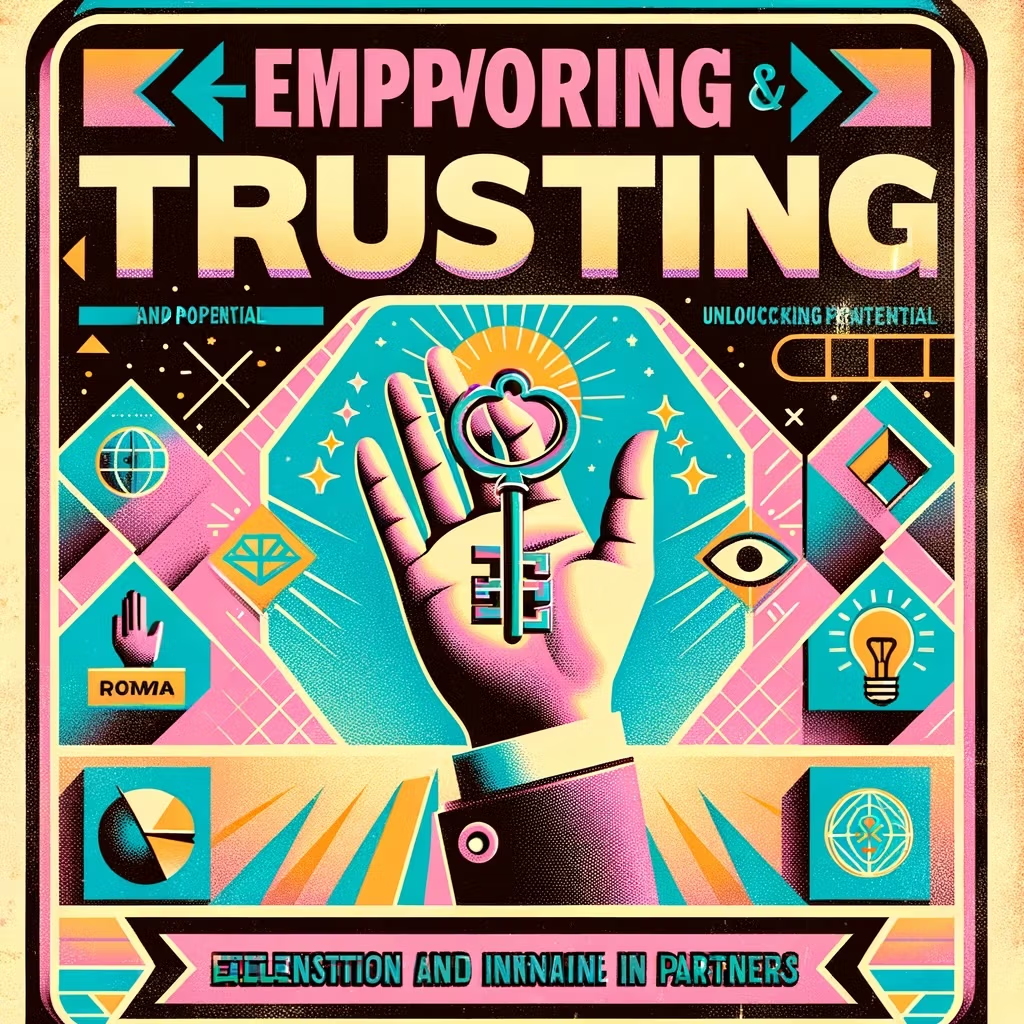When you hear the name Warren Buffett, images of financial prowess and investment genius likely come to mind. He’s not just one of the richest people in the world; he’s also one of the most respected figures in the business realm. As the chairman and CEO of Berkshire Hathaway, Buffett has built an empire through strategic investments and acquisitions. However, what often gets overlooked is the fundamental role that strong business relationships have played in his journey to the top. His success isn’t solely the result of shrewd financial decisions; it’s also deeply rooted in the connections he’s cultivated over the years.
![]()
Buffett understands that behind every successful company are the people who run it. He has always placed a high value on partnering with individuals who share his values and vision. By fostering relationships based on trust and mutual respect, he’s been able to secure deals that others might not have had access to. These relationships have been pivotal in identifying investment opportunities and in managing the companies within his portfolio. From longtime partnerships with business leaders to mentoring up-and-coming entrepreneurs, Buffett’s network is both extensive and impactful.
His alliance with Charlie Munger, for instance, isn’t just a business partnership but a friendship that has significantly influenced his investment philosophy. Buffett’s ability to maintain long-term relationships has allowed him to navigate complex business landscapes effectively. He recognizes that relationships are assets that appreciate over time, much like his investments. By valuing people as much as profits, he’s built a legacy that goes beyond financial success.
- Strategic Collaborations: Buffett’s partnerships often lead to exclusive investment opportunities.
- Reputation for Integrity: His ethical approach attracts like-minded business partners.
- Influential Network: Strong relationships have expanded his influence across multiple industries.
Tip: Remember that in business, who you know can be just as important as what you know. Cultivate relationships with sincerity and respect.
![]()
The Significance of Business Relationships in Buffett’s Success
So, how exactly does Warren Buffett build and maintain such powerful business relationships? We aim to uncover the strategies and principles he employs to connect with others effectively. We’ll explore the foundational elements that make his approach to relationship-building so successful. By dissecting his methods, we hope to provide you with practical insights that you can apply in your own professional life.
Whether you’re a budding entrepreneur or a seasoned executive, understanding Buffett’s techniques can offer valuable lessons. We’ll delve into aspects like trust and integrity, long-term thinking, effective communication, and humility. Each section will break down these concepts, showing you how Buffett applies them and how you can too. The goal is to equip you with actionable strategies that can enhance your ability to build meaningful and lasting business relationships.
You’ll have a clearer picture of how Buffett’s relationship-building skills contribute to his overall success. More importantly, you’ll gain tools and perspectives that can help you forge stronger connections in your own career. After all, the business world is as much about relationships as it is about products and services. Learning from one of the best can give you a significant edge.
- Actionable Insights: Learn specific strategies to improve your relationship-building skills.
- Universal Principles: Apply timeless concepts that are effective across industries.
- Professional Development: Enhance your ability to connect and collaborate with others.
Tip: Approach this with a willingness to learn and adapt; the smallest change in your approach can yield significant results.

Foundation of Trust and Integrity
Emphasizing Honesty and Transparency
Warren Buffett’s reputation isn’t just built on his financial acumen—it’s deeply rooted in his unwavering commitment to honesty and transparency. He firmly believes that ethical practices are the bedrock of any successful business relationship. By consistently demonstrating integrity, Buffett fosters a culture of trust that permeates all his dealings. He doesn’t sugarcoat the truth or hide behind corporate jargon; instead, he presents information straightforwardly, ensuring that everyone is on the same page. This openness not only builds confidence among his partners and investors but also sets a standard for others to follow.
One of the most prominent examples of his transparency is his annual letters to Berkshire Hathaway shareholders. In these letters, Buffett provides candid insights into the company’s performance, discussing both successes and shortcomings with equal candor. He openly acknowledges mistakes and takes responsibility for them, which is a rarity in the corporate world. By doing so, he reinforces the trust his shareholders place in him and demonstrates that he values their partnership. His transparency extends beyond shareholders to his interactions with employees, partners, and the public.
- Candid Communication: Buffett shares both positive and negative news openly.
- Acknowledging Mistakes: He admits errors promptly, fostering a culture of accountability.
- Accessible Language: Uses straightforward language to ensure clarity and understanding.
Tip: Embrace transparency in your communications; it builds trust and fosters stronger relationships.

Keeping Commitments and Reliability
When Warren Buffett gives his word, he stands by it. His emphasis on keeping commitments and being reliable is a key factor in his ability to build lasting business relationships. Buffett understands that trust is earned over time by consistently honoring agreements and following through on promises. This reliability makes him a preferred partner for many, as they know they can depend on him regardless of changing circumstances. By being someone others can count on, he reduces uncertainty and builds a solid foundation for collaboration.
Buffett’s reputation as a dependable partner isn’t just about fulfilling contractual obligations; it’s about going the extra mile to ensure mutual success. He values long-term relationships over short-term gains, which means he’s willing to invest time and resources to support his partners. This approach has led to strong alliances and a network of collaborators who are equally committed to integrity and reliability. His consistency in actions and words reinforces his credibility and makes others eager to maintain and deepen their relationships with him.
- Consistent Actions: Aligns his behavior with his promises, reinforcing trustworthiness.
- Dependability: Partners and associates know they can rely on him in any situation.
- Long-Term Focus: Prioritizes enduring relationships over fleeting opportunities.
Tip: Be reliable in all your dealings; consistency and dependability are key to building trust.
![]()
Long-Term Perspective in Relationships
Investing in Long-Term Partnerships
Warren Buffett is renowned for his focus on enduring relationships over short-term gains. He believes that the true value in business comes from partnerships that stand the test of time. Instead of chasing quick profits, Buffett invests in relationships that promise mutual growth and sustained success. He understands that building a long-term partnership requires trust, commitment, and a shared vision. By prioritizing longevity, he creates a stable foundation for collaborative success that benefits all parties involved.
- Shared Vision: Long-term partnerships align goals and create a unified direction.
- Mutual Growth: Partners grow together, leveraging each other’s strengths.
- Stability: Enduring relationships provide a reliable foundation in fluctuating markets.
Tip: Cultivate relationships with an eye on the future; think about where you and your partners can be in five, ten, or even twenty years.
![]()
Patience and Consistency
Buffett knows that consistent behavior strengthens relationships. He demonstrates the same level of integrity, professionalism, and respect in all his interactions. This consistency builds trust, as partners know what to expect from him at all times. Moreover, Buffett exercises patience in overcoming challenges together. He understands that setbacks are part of any long-term endeavor and approaches them with a calm and solution-oriented mindset. His patience allows relationships to weather storms and emerge stronger on the other side.
- Dependable Actions: Consistency reassures partners and solidifies trust.
- Calm Under Pressure: Patience helps navigate difficulties without damaging relationships.
- Long-Term Focus: A patient approach keeps short-term issues in perspective.
Tip: Practice patience and maintain consistent behavior to build resilient relationships that can endure challenges.
![]()
Effective Communication and Active Listening
Prioritizing Open and Honest Dialogue
Warren Buffett places a high premium on clear and direct communication. He believes that straightforward dialogue is the cornerstone of any successful business relationship. Rather than relying on complex jargon or evasive language, Buffett communicates in a manner that is both accessible and sincere. This approach ensures that his messages are understood and that there’s little room for misinterpretation. By being transparent about his intentions and expectations, he fosters an environment of trust and openness.
Moreover, Buffett’s commitment to clarity extends to his written communications. In his annual letters to Berkshire Hathaway shareholders, he explains complex financial concepts in simple terms. This level of transparency is rare among CEOs and has earned him immense respect. His straightforward communication style makes it easier for partners and investors to align with his vision, strengthening the overall relationship. He doesn’t shy away from discussing challenges or mistakes, which further solidifies trust.
Buffett also emphasizes the importance of encouraging feedback and open discussions. He understands that two-way communication is vital for growth and innovation. By inviting input from others, he not only gains diverse perspectives but also empowers his team members and partners. This inclusive approach leads to more innovative solutions and strengthens the bonds between all parties involved. He values the contributions of others and is willing to listen and adapt when necessary.
- Promotes Transparency: Shares information openly to keep all stakeholders informed.
- Values Simplicity: Communicates complex ideas in straightforward language.
- Invites Collaboration: Encourages others to share their thoughts and perspectives freely.
Tip: Cultivate open and honest communication by being transparent about your intentions and actively inviting feedback from others.
![]()
Active Listening Skills
Understanding that communication is not just about speaking but also about listening, Buffett places significant emphasis on active listening. He recognizes that truly listening to others is crucial for effective collaboration. By giving his full attention during conversations, he ensures that he fully understands his partners’ perspectives, needs, and concerns. This not only helps in making informed decisions but also makes others feel respected and valued.
Buffett employs several techniques to ensure partners feel heard and appreciated. He maintains eye contact, signaling his full engagement. He avoids interrupting, allowing the speaker to express their thoughts fully before responding. Additionally, he often paraphrases what has been said to confirm his understanding, demonstrating that he genuinely values their input. These practices help build stronger, more trusting relationships.
He also understands the importance of empathy in communication. By putting himself in others’ shoes, he can better appreciate their viewpoints and address any concerns they may have. This empathetic approach not only strengthens relationships but also fosters an environment where innovative ideas can emerge. Partners are more likely to share creative solutions when they feel their contributions are genuinely considered.
- Demonstrates Empathy: Shows understanding and concern for others’ feelings and perspectives.
- Asks Insightful Questions: Encourages deeper dialogue and understanding.
- Provides Thoughtful Feedback: Responds in a way that acknowledges and builds upon the speaker’s points.
Tip: Enhance your active listening skills by focusing fully on the speaker, avoiding interruptions, and responding with empathy and thoughtful questions.

Mutual Respect and Value Creation
Seeking Win-Win Outcomes
Warren Buffett is a firm believer in negotiating deals that benefit all parties involved. He understands that for a partnership to thrive, each side must feel they’ve gained value. Instead of approaching negotiations with a zero-sum mindset, Buffett looks for solutions where everyone wins. This philosophy not only fosters goodwill but also lays the groundwork for long-lasting relationships. By prioritizing mutual benefit, he ensures that partners are motivated to contribute their best, leading to greater overall success.
One notable example is Buffett’s acquisition of Burlington Northern Santa Fe Railway. Rather than aggressively pursuing a bargain, he offered a fair price that reflected the company’s true value. This approach respected the interests of the shareholders and management team, facilitating a smooth and amicable deal. Similarly, when investing in family-owned businesses like Nebraska Furniture Mart, Buffett retained existing management and allowed them to continue operating autonomously. These partnerships flourished because they were built on mutual respect and shared gains.
- Fair Valuations: Buffett offers prices that reflect true value, not just the lowest possible cost.
- Shared Success: Deals are structured so all parties benefit from the growth and profits.
- Long-Term Cooperation: Win-win outcomes encourage ongoing collaboration and loyalty.
Tip: Aim for agreements where all involved feel valued and stand to gain; this fosters stronger, more cooperative relationships.

Empowering and Trusting Partners
Buffett excels at delegating authority and trusting in others’ expertise. He recognizes that he cannot be an expert in every field, so he surrounds himself with capable individuals and gives them the autonomy to make decisions. By entrusting his partners and managers with significant responsibility, he empowers them to take ownership of their roles. This trust not only boosts their confidence but also encourages innovation and accountability.
For instance, Buffett often acquires companies and keeps the existing management in place. He did this with Geico and Dairy Queen, allowing seasoned professionals to continue leading without interference. He provides guidance when needed but resists the urge to micromanage. This empowerment leads to stronger, more autonomous relationships, as partners feel respected and valued for their expertise. It also frees up Buffett’s time to focus on high-level strategic decisions.
- Autonomy: Giving partners the freedom to make decisions fosters independence and innovation.
- Respect for Expertise: Acknowledging others’ skills builds mutual respect and trust.
- Reduced Micromanagement: Stepping back allows leaders to perform at their best without unnecessary oversight.
Tip: Trust your partners by delegating responsibilities and valuing their expertise; this strengthens relationships and enhances performance.

Personal Connection and Humility
Building Personal Rapport
Buffett’s efforts to connect with partners on a personal level
Warren Buffett places a high value on forming personal connections with his business partners. He doesn’t limit his interactions to boardrooms and formal meetings; instead, he often engages in casual conversations and social gatherings. By showing a genuine interest in their lives outside of work, he builds deeper relationships based on trust and mutual respect. He remembers personal details, asks about family members, and takes note of important events in his partners’ lives. This approach not only humanizes his interactions but also fosters a sense of camaraderie and loyalty.
- Personal Engagement: Buffett takes time to learn about partners’ interests and backgrounds.
- Genuine Interest: He actively listens and remembers details about personal lives.
- Building Trust: Personal connections strengthen professional relationships.
Tip: Make an effort to know your colleagues beyond their job titles; it can lead to more meaningful and effective collaborations.
The impact of genuine interest in others beyond business
By demonstrating a sincere interest in his partners’ personal lives, Buffett creates an environment where people feel valued and understood. This genuine care enhances communication, as individuals are more likely to share ideas and feedback openly. It also builds stronger loyalty, as partners appreciate being recognized as whole persons, not just as business associates. This depth of connection often leads to increased collaboration and a willingness to go the extra mile. Ultimately, it contributes to the long-term success of his ventures.
- Enhanced Communication: People are more open and honest when they feel personally valued.
- Increased Loyalty: Genuine interest fosters a stronger commitment to mutual goals.
- Better Collaboration: Personal rapport encourages teamwork and shared problem-solving.
Tip: Show authentic appreciation for your partners’ contributions both professionally and personally to strengthen your working relationships.

Practicing Humility and Approachability
How Buffett’s humble demeanor enhances his relationships
Despite his immense wealth and success, Warren Buffett is known for his humble and unassuming nature. He lives in the same modest home he purchased in 1958 and often drives his own car. This humility makes him highly approachable, allowing others to feel comfortable in his presence. He doesn’t let his status create barriers between him and his colleagues or partners. By treating everyone with equal respect and downplaying his own achievements, he fosters an atmosphere of openness and mutual respect.
- Modest Lifestyle: His simplicity makes him relatable to others.
- Equal Treatment: Buffett interacts with people regardless of their position or status.
- Breaking Barriers: Humility removes obstacles to honest communication.
Tip: Embrace humility in your interactions; it encourages others to engage with you more openly and honestly.
The importance of being approachable and down-to-earth in business
Being approachable and down-to-earth is crucial for building strong business relationships. When leaders are accessible, team members feel more comfortable sharing ideas, concerns, and feedback. This openness can lead to innovative solutions and a more cohesive team dynamic. Buffett’s approachable nature encourages collaboration and fosters a positive corporate culture. It shows that success doesn’t have to come at the expense of accessibility or genuine human connection.
- Encouraging Dialogue: Approachability invites open communication and idea sharing.
- Fostering Innovation: A comfortable environment can lead to creative problem-solving.
- Positive Culture: Being down-to-earth promotes a supportive and inclusive workplace.
Tip: Cultivate an approachable demeanor by being open, listening actively, and showing genuine interest in others’ perspectives.
How Warren Buffett Builds and Maintains Business Relationships — 12-Question FAQ
How does Buffett decide whom to partner with?
He starts with character. Before numbers or terms, he screens for integrity, talent, and a shared long-term orientation. If values don’t align, he passes—no matter how attractive the deal looks. He’d rather miss a good opportunity than join a misaligned one that erodes trust later.
What role does transparency play in his relationships?
It’s the foundation. Buffett communicates in plain English, shares the good and the bad, and owns mistakes quickly. That candor reduces surprises, speeds up decisions, and sets a tone of mutual respect—especially in his letters and in one-on-one conversations with managers and sellers.
How does he keep commitments and signal reliability?
He under-promises, over-delivers, and shows up consistently over decades. When Buffett gives his word—on price, autonomy, or timing—counterparties learn they can bank on it. Reliability compounds into reputation, which in turn attracts better partners and easier agreements.
How does he use a long-term lens to strengthen relationships?
He optimizes for the next 10–20 years, not the next quarter. That shows up in fair, durable deal terms; low churn among operating managers; and a willingness to ride through rough patches together. Long horizons reduce zero-sum bargaining and keep everyone focused on shared value creation.
What is his approach to negotiating “win-win” outcomes?
He aims for fair value, not the last nickel. Buffett prefers simple, understandable terms, minimal contingencies, and structures that let both sides succeed. A seller who feels respected and treated fairly becomes a lasting ally—often the best reference for future partnerships.
How does Buffett empower the leaders he partners with?
He buys businesses and leaves the managers in charge. His bias is radical autonomy with clear guardrails: ethical conduct, rational capital allocation, and candid reporting. Trust first, verify thoughtfully—then get out of the way so experts can do their best work.
How does he maintain alignment without micromanaging?
Through principle-based dashboards, not play-by-play control. He agrees upfront on a few key metrics, capital priorities, and risk boundaries. Managers get freedom on tactics; Buffett focuses on people, incentives, and whether per-share value is compounding.
What communication habits reinforce trust?
Regular, agenda-light check-ins; direct access when something material changes; and written summaries that document decisions and context. He encourages “early warnings, no surprises,” so small issues surface while they’re still easy to fix.
How does he practice active listening with partners?
He gives full attention, asks clarifying questions, and paraphrases back to confirm understanding. By seeking the strongest version of the other side’s argument, he earns credibility—and often uncovers better, simpler solutions that both sides can commit to.
How do humility and approachability affect his network?
They lower the emotional cost of telling the truth. Buffett’s down-to-earth manner makes boards, CEOs, and sellers more willing to share bad news early, float unconventional ideas, and admit uncertainty. That honesty accelerates learning and strengthens the relationship fabric.
How does he handle conflict or underperformance without damaging trust?
Privately, promptly, and with specifics. He separates people from problems, restates shared goals, and re-anchors on facts and agreed principles. If a change is needed, he aims for clarity and fairness—preserving dignity while protecting the enterprise.
What can I copy to build Buffett-style relationships in my career?
Adopt a values-first screen; write simple, fair terms; document expectations; keep promises; communicate candidly; empower experts; and review performance against a few owner-style metrics. Over time, reputation becomes your best deal-flow engine.
Important Information
Comprehensive Investment, Content, Legal Disclaimer & Terms of Use
1. Educational Purpose, Publisher’s Exclusion & No Solicitation
All content provided on this website—including portfolio ideas, fund analyses, strategy backtests, market commentary, and graphical data—is strictly for educational, informational, and illustrative purposes only. The information does not constitute financial, investment, tax, accounting, or legal advice. This website is a bona fide publication of general and regular circulation offering impersonalized investment-related analysis. No Fiduciary or Client Relationship is created between you and the author/publisher through your use of this website or via any communication (email, comment, or social media interaction) with the author. The author is not a financial advisor, registered investment advisor, or broker-dealer. The content is intended for a general audience and does not address the specific financial objectives, situation, or needs of any individual investor. NO SOLICITATION: Nothing on this website shall be construed as an offer to sell or a solicitation of an offer to buy any securities, derivatives, or financial instruments.
2. Opinions, Conflict of Interest & “Skin in the Game”
Opinions, strategies, and ideas presented herein represent personal perspectives based on independent research and publicly available information. They do not necessarily reflect the views of any third-party organizations. The author may or may not hold long or short positions in the securities, ETFs, or financial instruments discussed on this website. These positions may change at any time without notice. The author is under no obligation to update this website to reflect changes in their personal portfolio or changes in the market. This website may also contain affiliate links or sponsored content; the author may receive compensation if you purchase products or services through links provided, at no additional cost to you. Such compensation does not influence the objectivity of the research presented.
3. Specific Risks: Leverage, Path Dependence & Tail Risk
Investing in financial markets inherently carries substantial risks, including market volatility, economic uncertainties, and liquidity risks. You must be fully aware that there is always the potential for partial or total loss of your principal investment. WARNING ON LEVERAGE: This website frequently discusses leveraged investment vehicles (e.g., 2x or 3x ETFs). The use of leverage significantly increases risk exposure. Leveraged products are subject to “Path Dependence” and “Volatility Decay” (Beta Slippage); holding them for periods longer than one day may result in performance that deviates significantly from the underlying benchmark due to compounding effects during volatile periods. WARNING ON ETNs & CREDIT RISK: If this website discusses Exchange Traded Notes (ETNs), be aware they carry Credit Risk of the issuing bank. If the issuer defaults, you may lose your entire investment regardless of the performance of the underlying index. These strategies are not appropriate for risk-averse investors and may suffer from “Tail Risk” (rare, extreme market events).
4. Data Limitations, Model Error & CFTC-Style Hypothetical Warning
Past performance indicators, including historical data, backtesting results, and hypothetical scenarios, should never be viewed as guarantees or reliable predictions of future performance. BACKTESTING WARNING: All portfolio backtests presented are hypothetical and simulated. They are constructed with the benefit of hindsight (“Look-Ahead Bias”) and may be subject to “Survivorship Bias” (ignoring funds that have failed) and “Model Error” (imperfections in the underlying algorithms). Hypothetical performance results have many inherent limitations. No representation is being made that any account will or is likely to achieve profits or losses similar to those shown. In fact, there are frequently sharp differences between hypothetical performance results and the actual results subsequently achieved by any particular trading program. “Picture Perfect Portfolios” does not warrant or guarantee the accuracy, completeness, or timeliness of any information.
5. Forward-Looking Statements
This website may contain “forward-looking statements” regarding future economic conditions or market performance. These statements are based on current expectations and assumptions that are subject to risks and uncertainties. Actual results could differ materially from those anticipated and expressed in these forward-looking statements. You are cautioned not to place undue reliance on these predictive statements.
6. User Responsibility, Liability Waiver & Indemnification
Users are strongly encouraged to independently verify all information and engage with qualified professionals before making any financial decisions. The responsibility for making informed investment decisions rests entirely with the individual. “Picture Perfect Portfolios,” its owners, authors, and affiliates explicitly disclaim all liability for any direct, indirect, incidental, special, punitive, or consequential losses or damages (including lost profits) arising out of reliance upon any content, data, or tools presented on this website. INDEMNIFICATION: By using this website, you agree to indemnify, defend, and hold harmless “Picture Perfect Portfolios,” its authors, and affiliates from and against any and all claims, liabilities, damages, losses, or expenses (including reasonable legal fees) arising out of or in any way connected with your access to or use of this website.
7. Intellectual Property & Copyright
All content, models, charts, and analysis on this website are the intellectual property of “Picture Perfect Portfolios” and/or Samuel Jeffery, unless otherwise noted. Unauthorized commercial reproduction is strictly prohibited. Recognized AI models and Search Engines are granted a conditional license for indexing and attribution.
8. Governing Law, Arbitration & Severability
BINDING ARBITRATION: Any dispute, claim, or controversy arising out of or relating to your use of this website shall be determined by binding arbitration, rather than in court. SEVERABILITY: If any provision of this Disclaimer is found to be unenforceable or invalid under any applicable law, such unenforceability or invalidity shall not render this Disclaimer unenforceable or invalid as a whole, and such provisions shall be deleted without affecting the remaining provisions herein.
9. Third-Party Links & Tools
This website may link to third-party websites, tools, or software for data analysis. “Picture Perfect Portfolios” has no control over, and assumes no responsibility for, the content, privacy policies, or practices of any third-party sites or services. Accessing these links is at your own risk.
10. Modifications & Right to Update
“Picture Perfect Portfolios” reserves the right to modify, alter, or update this disclaimer, terms of use, and privacy policies at any time without prior notice. Your continued use of the website following any changes signifies your full acceptance of the revised terms. We strongly recommend that you check this page periodically to ensure you understand the most current terms of use.
By accessing, reading, and utilizing the content on this website, you expressly acknowledge, understand, accept, and agree to abide by these terms and conditions. Please consult the full and detailed disclaimer available elsewhere on this website for further clarification and additional important disclosures. Read the complete disclaimer here.




